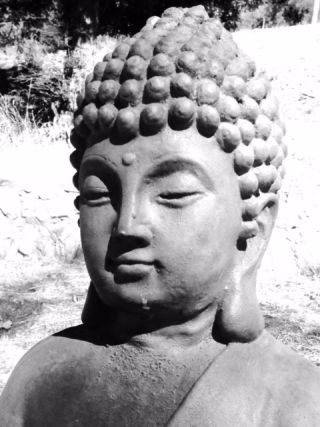Career
Do You Have A Balanced Life? Does Anybody?
The three mindsets that help us respond to life on the spot
Posted October 7, 2014

Balance, similar to happiness, can neither be achieved like a goal nor possessed like an asset. It is something to be lived, everyday anew, never perfect and never one hundred percent foreseeable. It is a way of life we need to figure out for ourselves on the spot. As circumstances change with every day or, to be precise, with every moment -subtly or dramatically, from within or from without- so must we.
If it helped at all, I would prescribe “flexibility of the mind.” It is the quality that enables us to roll with the punches here and see the miracle of life there, a quality that helps us see what is needed in any given situation. However, flexibility cannot be grasped or chosen either, but is the result of learning from our mistakes with skill, wisdom, and awareness. So therefore I offer something more concrete, namely three insights backed up by science. We must figure out each for ourselves how to rest, exert, and still the mind.
1. REST AND SLEEP
We all need rest and sleep. According to the Centers for Disease Control and Prevention, Americans especially are resisting this fact. As a result, an estimated 50-70 million adults have sleep or wakefulness disorders, causing everything from accidents to depression.Much to my horror, sleep deprivation, which is sleeping less than seven hours for adults, correlates with obesity. (I swear, I will never ever sleep-deprive again. Who needs the extra pounds? I know I don’t.) Just as we wouldn’t skip over brushing our teeth, let’s not skip over proper sleep hygiene, including going to bed and rising at the same time every day; avoiding large meals, caffeine, alcohol and nicotine before bedtime. And we also need short breaks during the day to let the body be nourished and find distance to our problems. The main thing is: you have to figure out your own rhythm and your needs to rest your mind. Without taking time out, a balanced life will remain elusive.
2. EXERTION
As author Paula Davis-Laack noted in her blog about finding balance, our choice is usually not whether to work or not to work. Instead, each of us has to determine what kind of work feels good and restores us. I can only attest to this. As a working mother of three, I cannot abstain from work—I have signed up for working really hard, haven’t I? And that is alright with me. It is essential, however, to balance work that fills me up with work that robs me of energy. I can do both types of work, and rest assured I must do both types of work in order for my family to survive. But I insist on a good ratio, which is something only I can do and defend against the evils of bad habits encroaching.
Exertion also means that we need to reach out of ourselves and form personal connections, at work and at home. Don’t get too comfortable with yourself. Your mind needs to become challenged, inspired, and empowered by others. Connectedness, as supported by countless studies, is the most important ingredient to happiness and thus to the balanced life.
3. STILLNESS
I have written extensively about the still mind that does not grasp the world, but feels comfortable with its fluidity. It is the mind that can connect with how things are without resistance in a spiritual mode of consciousness (see Part 3 of A Unified Theory of Happiness). We are all blessed to be alive in this mostly uninhabitable universe, blessed to experience our very existence, blessed to breathe and love and work. Yet, we rarely feel blessed. I believe we can only invite balance into our lives when we come to love life deeply, no matter how stormy life may be in its actualization.
Nobody can claim to have figured out the river of life. It will take us by surprise and at times cause us to dig deep into our resources. But knowing how to rest, act, and be still helps us manoever the river's turbulances with greater ease and joy.
1. http://www.cdc.gov/features/dssleep/
2. http://www.hsph.harvard.edu/nutritionsource/sleep/
3. http://www.psychologytoday.com/blog/pressure-proof/201110/the-worklife-balance-myth
4. www.AUnifiedTheoryofHappiness.com
NOTE: If this post in any way “spoke” to you, and you believe in might to others also, please consider sending them its link. Moreover, if you you’d like to read other articles I’ve written for Psychology Today, click here.
© 2014 Andrea F. Polard, PsyD. All Rights Reserved.
----I invite readers to join me on Facebook and to follow my miscellaneous psychological and philosophical musings on Twitter.


